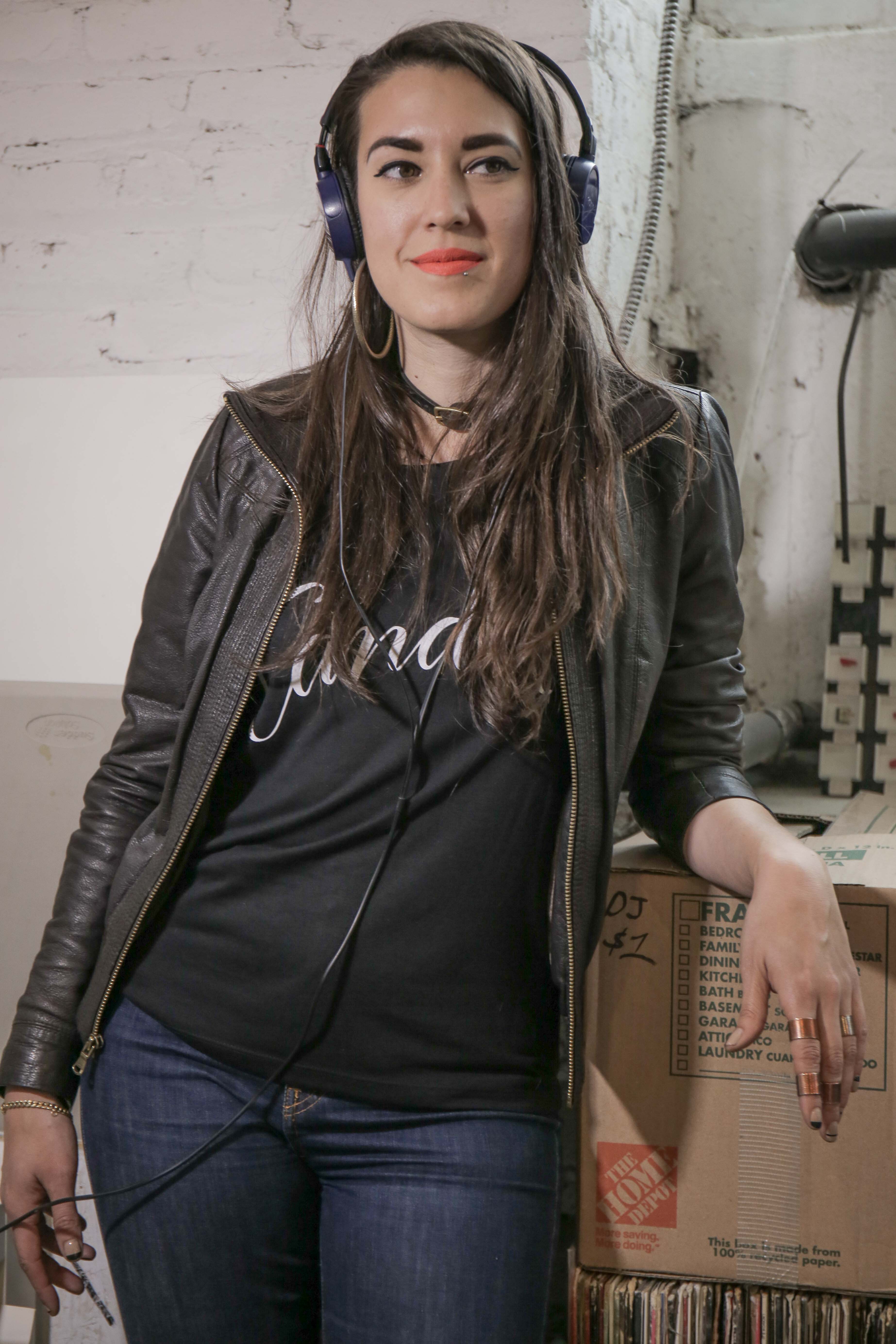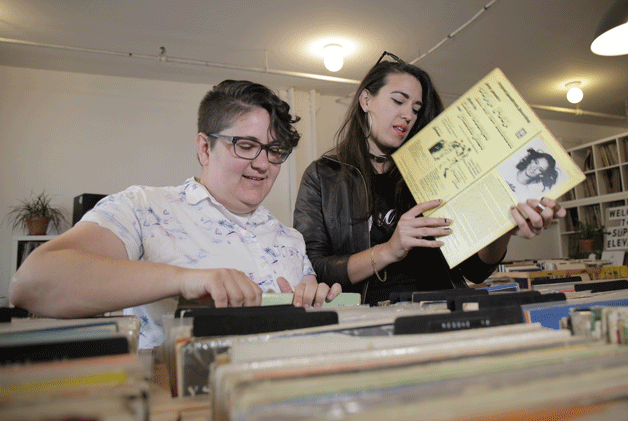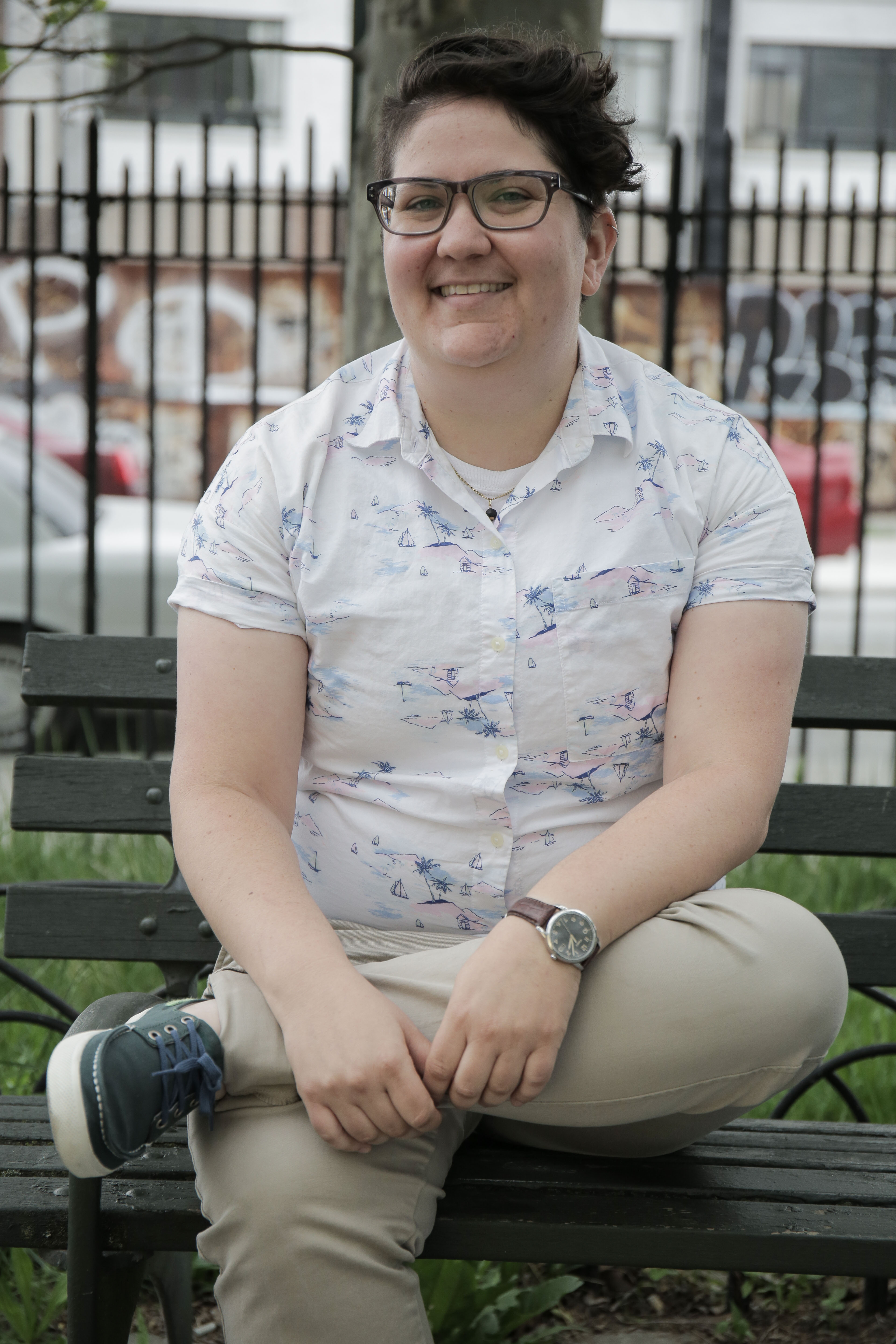In a world of calculated algorithms, pre-packaged Discover Weekly playlists, and “For You” tabs, it’s easy to forget that we once relied on the fallible taste and suspect opinions of mere mortals to find new music. Like so many others in the pre-Spotify era, I slaved over mix CDs and immaculately curated song collections, picked and primed for specific moods (i.e., “sad music with guitars in it” and “Fun N Flirty”). That’s why stumbling upon Radio Menea, a bimonthly Latinx music podcast, was such a breath of fresh air. It reminded me that I once learned about music and music culture from real humans, rather than a few buttons on my iPhone.
Writer-activists Miriam Zoila Pérez and Verónica Bayetti Flores are the hosts of Radio Menea. Flores is a former Feministing contributor, longtime abortion rights activist, and Co-President of the Board of Directors of the National Network of Abortion Funds, and Pérez is currently a columnist at Colorlines. According to the iTunes description, the project is about the “fabulous mezcla of Latinx music and life: some mainstream, some alternative, some English, and some Español, some new and some old.” On the unapologetically bilingual 40-minute program, you’ll hear everything from the apocalyptic club tracks of Mexican producer Zutzut to Gloria Estefan classics. “We say things in Spanish, but we don’t translate everything. It’s an English podcast, but we are not super concerned about people’s comprehension,” explains Pérez. I mention Junot Díaz’s famous quote about people who will read books in Elvish, but refuse to engage with a real-life foreign language. She nods her head emphatically.

The women of Radio Menea aren’t ashamed of their omnivorous music tastes; after all, it’s pretty much the new normal. “Some of these pop stars and their music have had an important role in my life,” Flores admits. “I don’t want to denigrate that just because they’re popular or successful.” (I smell a poptimist in the making). “On the other end, there are artists who do take a lot of great care to say, ‘I’m exploring genre; I’m exploring race’ and being intentional about this too,” she says.
“We are here to represent our Latino experience out of so many.”
Pérez and Flores engage with Latinx music on a far more nuanced level than many music-oriented podcasts (or podcasts, in general, for that matter) do. Between analysis of J Balvin’s whiteness and giggles about the sappiness of reggaeton romántico, the pair discusses what it’s like to have sex with acrylic nails as long as Ivy Queen’s, and the pros and cons of joining #TeamFeelings in the game of love. It’s sharp, humorous, informative, and informal, like borrowing your woke friend’s Spotify playlist and having them offer annotations for each song. That lightheartedness and humility is something that’s often missing from the stodgy world of NPR.
The two were first inspired to launch the project after watching the Latin Grammys and listening to Ann Friedman and Aminatou Sow’s Call Your Girlfriend podcast. Even with increased accessibility to high-quality recording equipment, the process wasn’t easy, especially since one host lives in D.C. and the other in New York. “This is such a part-time hustle. It took months to learn what we needed to learn to get up and running, and we thought it would be easy,” Pérez reveals.
Remarkably, they record the podcast over the phone, and thanks to the magic of post-production and sound engineering, they’re able to weave together a theme-based narrative every week. Recent episodes cover concepts as diverse as desire, nostalgia, Orlando, and even “shade.” “Being able to have a space to discuss Latino culture in ways that makes sense in the context of the rest of the world feels really important,” says Flores. It’s an apt observation; we’ve never consumed music in a vacuum, separate from cultural context. And for Latinxs, whose music almost never gets the spotlight, unpacking its influence in the mainstream sphere is that much more important.
Flores and Pérez inject Radio Menea with a healthy dose of queer political analysis too. But they don’t necessarily want to label Radio Menea a “queer show.” As Flores notes, “[Queerness] affects how I engage with music and engage with the world in a lot of ways. The same way being an immigrant or Latina is a huge part of our lives. But it’s not like, ‘Oh, this is a queer show.’ But here we are, both queer.” The pair discussed their creative vision for the podcast extensively before recording the first episode, and decided that the center of the work should be music. “Music brings a lot of joy to me, so it’s nice to focus on something that’s more joyful or more uplifting, because this shit is rough,” Pérez adds with a chuckle.

Political analysis might not be the driving force of Radio Menea, but it certainly informs the narrative of each episode, whether it’s through a reflection on the racist and classist indie backlash to reggaeton, or a discussion on Don Omar’s domestic abuse charges. “We didn’t set up for this to be a social justice project necessarily, but it’s just sort of who we are and what we do,” Flores says. “You can pass a piece of legislation that will make something like discrimination illegal, but if the culture around that doesn’t change, then it’s meaningless.”
Radio Menea is like borrowing your woke friend’s Spotify playlist.
Radio Menea comes at a time when listeners are demanding more diversity in podcast culture, like the whiskey-fueled genius of Another Round, a BuzzFeed podcast hosted by Heben Nigatu and Tracy Clayton. The podcast boom has also brought us established Latinx music shows like NPR’s Alt.Latino, as well as a crop of more underground efforts like Beat Latino and Songmess. The women of Radio Menea find themselves somewhere in between those programs. Neither Flores nor Pérez have radio production experience, but that has become a boon for the success, style, and voice of the show. “There are so many popular podcasts in which the audio quality is not great, but people don’t care if the content is good. So that was inspiring; I don’t have to have a studio to be able to do this,” Pérez continues. “Some people will say you needed to get into it five years ago to be an early adopter…but I just felt like, why not jump in and try to make something happen.”

And so they did. “We just want to make something that’s fun and that reflects a Latino experience,” Flores concludes. ‘We are not trying to do anything that [represents] the Latino experience [as a whole], because I don’t think there’s such a thing. We are here to represent our Latino experience out of so many.”
A new episode of Radio Menea drops every other Friday on iTunes, Soundcloud, Stitcher and Google Play. For more info, click here. Flores and Pérez also curated a very special playlist for us via Apple Music:







